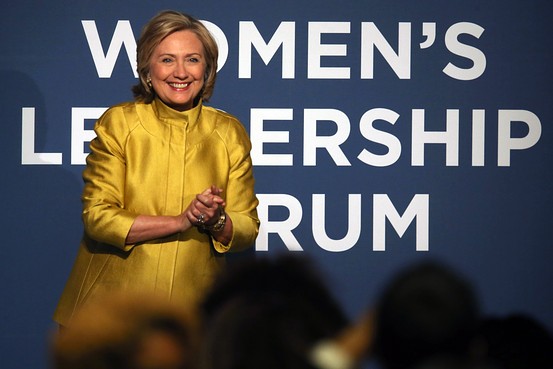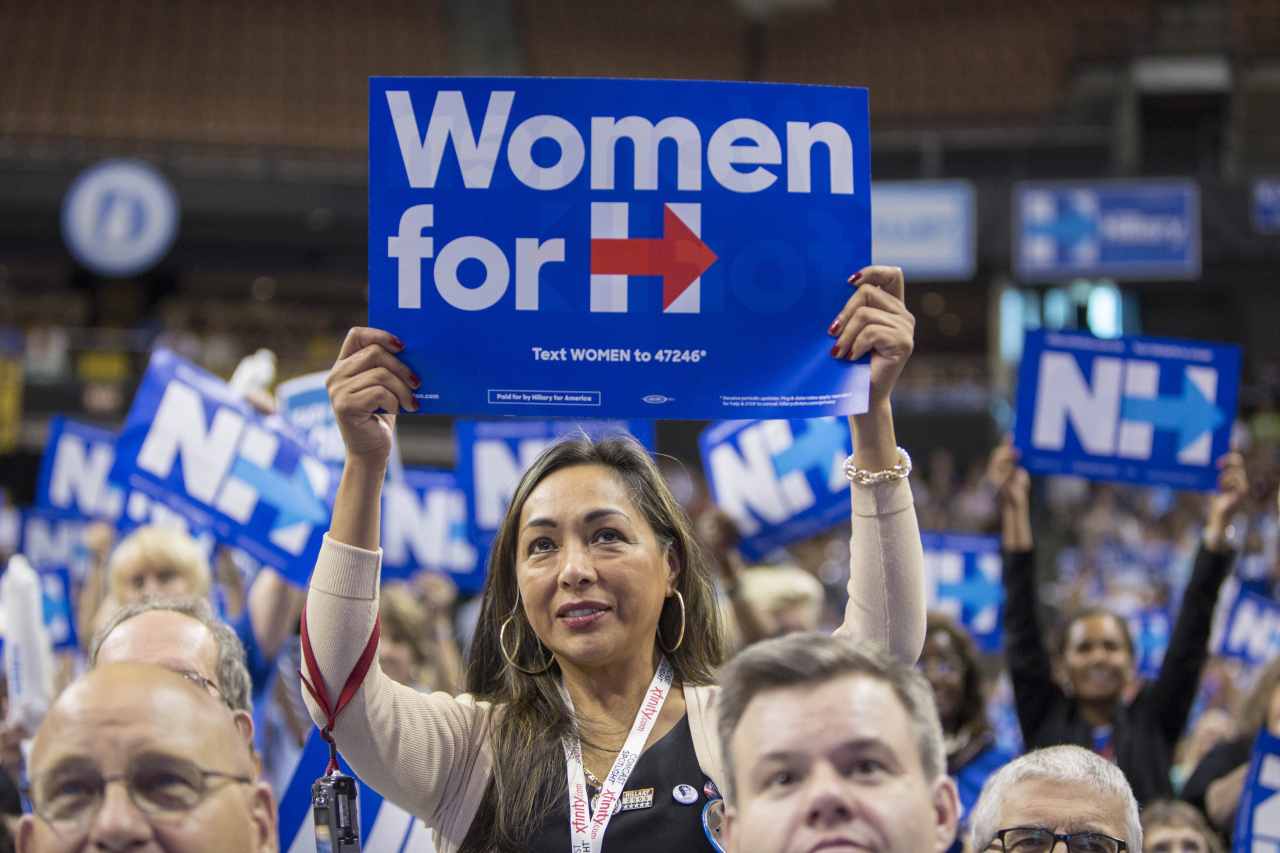There has long been a calling for more women to be involved and elected to positions of power in government. And as we prepare to nominate a woman for the most powerful office in the country, it may seem as if the desire to urge more women to get involved in politics needs not be so strong anymore, but the fact remains that representation of women in Congress is, at best, less than helpful towards women’s rights.
Women make up about 20 percent of Congress, but 51 percent of the general population. The men who make up the rest of Congress are by no means out to get women with their policies or inaction, but they simply may not try as hard to get the proper measures passed because they do not directly affect them. Because of this, it is essential that we start to see more equal representation for women in Congress, as well as lower levels of government.
In my eyes, there is no other way to do this but begin to get college women more involved in the political process and get everyone to care about what is going on. Complacency toward government and the world in general will get the modern women’s rights movement nowhere. It seems daunting to have to stand up to the government for what’s right, but if and when it works it will be more than worth it. Change is not going to happen unless women raise their voices about a concern. It’s scary to be a leader, but in the end, it is better than staying silent and accepting the discrimination that women can face through laws made by Congress.
College is a time to find your voice and stand up for what you believe in. There can also be tremendous opportunities within your collegiate timeframe to actually contribute to change. As easy as it may seem to just raise your voice and show your concerns, it is much harder than it looks. Often, women, especially young women, are made to feel as if their issues don’t matter because they cannot even do anything to fix the larger issues that are causing them. But it doesn’t have to be this way.

To combat this, college women need to learn that their voices matter and that they can change things if they want to. One way to become more politically involved in women’s issues in college is to join (or start) groups on campus that adhere to your beliefs. This can entail joining either the University Democrats or Republicans, or other groups more geared specifically toward fighting for the issues you find most important. Working with your colleagues in these groups will give you a better sense of what it takes to enact change, and how it actually can be done—even if it seems implausible.
By joining these groups, you’ll find similar minded people that you can work together with to actually make a difference. Likewise, your confidence in being informed on the issues will only increase as you process them more and try to work toward meaningful change.
Becoming involved in student government is also a great way for college women to find that the power of their speech can actually change things. While this would mostly involve fighting for issues plaguing your specific school, it is a more than worthwhile opportunity to grow as a leader.
Likewise, campus sexual assault is an issue that many universities seem to ignore, but when women speak up about it loudly enough, their voices can become so large that they actually make a difference. Because so many women spoke up across the country about how reports of rape are often not handled properly on college campuses, Vice President Joe Biden has become more vocal on the issue and has brought it to the forefront of the discussion of rape culture. Perhaps the Vice President would have been vocal about this issue had there not been so much pushback from young women across the nation, but it would surely not have been as strong and compelling. Seeing Biden stand with women who are facing such real issues because of their college’s administrators is powerful. And it shows the power of the people when they stand together and institute change.
On a more national level, Senator Kirsten Gillibrand (D-NY) runs an organization entitled “Off the Sidelines.” It aims at getting women to stand up and make changes when they don’t like what they see in government. Gillibrand also works to ensure that more women get elected to Congress and other positions of power. She dealt with sexism that caused her to be afraid to speak up, but she was able to most past her fear and persevere.
You don’t have to be the next Hillary Clinton, but you do have a lot of power in your voice and ability to protest when you feel something is unjust. Our generation seems more inclined than ever to fight for what is right, and college women need to realize the change that they can make if they step in. Instead of stewing over the latest Congressional official to say something derogatory about women’s issues, we need to stand up and say enough is enough. However, as great as activism can be, it will still never amount to anything if we do not elect people who understand the issues that divide us and cause these emotions to be so strong.
The likelihood of the United States electing its first woman president is very high, and that should convince more women to speak up when they feel something is unjust. But it still is not enough to ensure that women will have fair representation in Congress. While many college women are obviously not old enough to run for that office yet, gender should no longer make it a more daunting task. The United States remains one of the countries with the least representation for women in our government.
It’s time to change that.


















[…] according to the organization’s website. Since 2015, Her Campus has recognized forward-thinking college womenmaking incredible strides in a multitude of fields in its “22 Under 22 Most Inspiring College […]